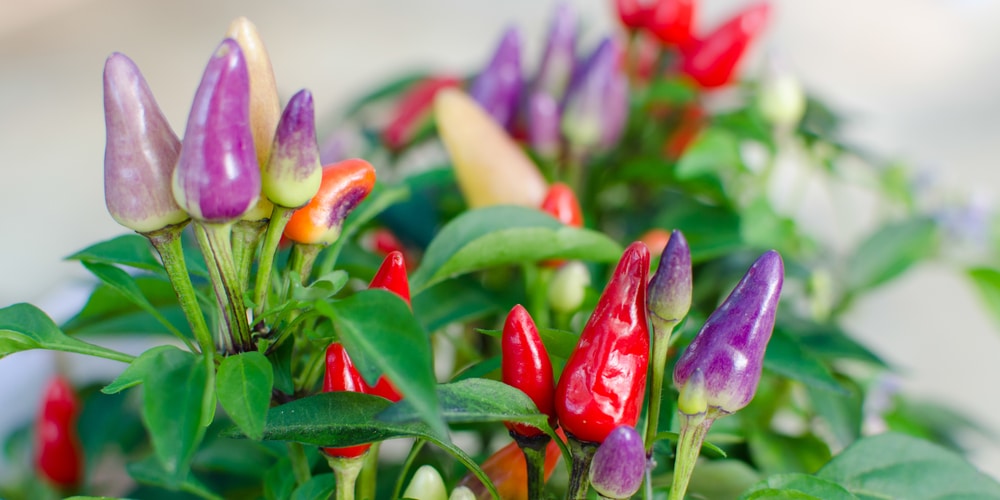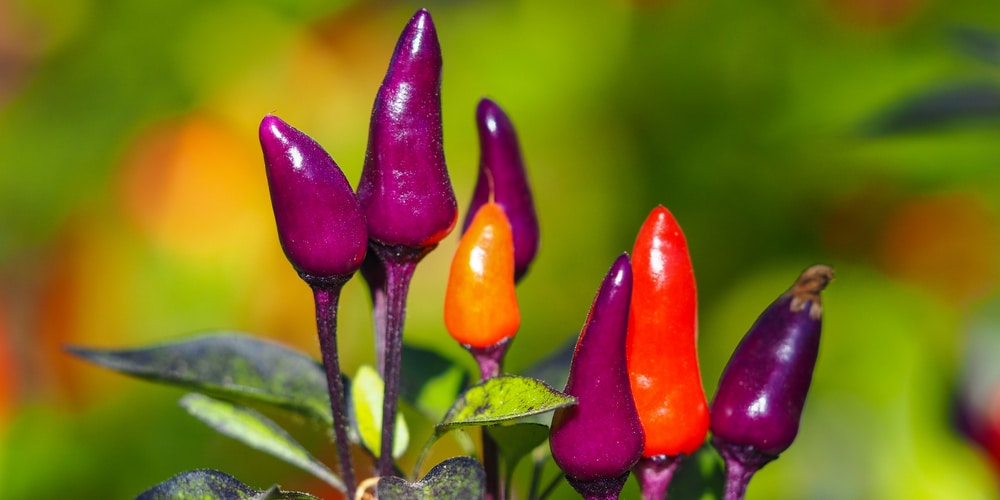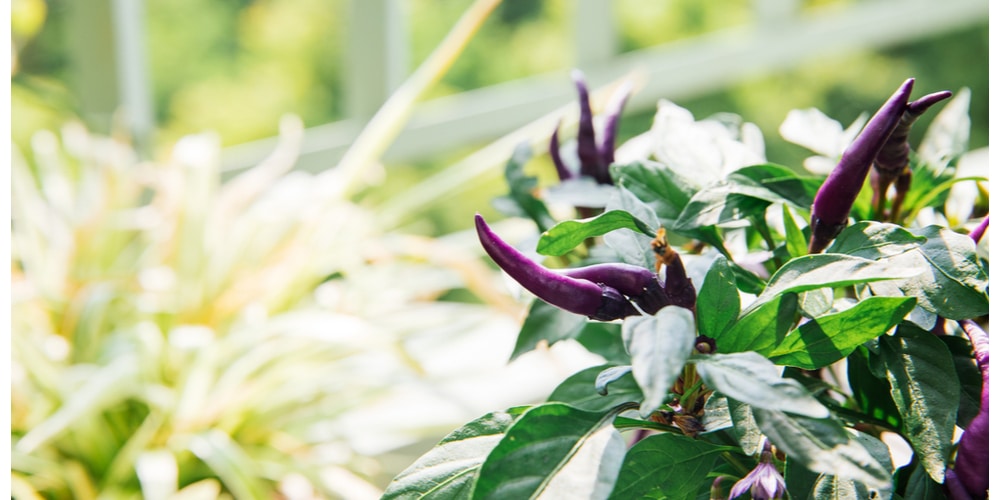Peppers generally grow underneath the plant’s leaves; there are some varieties that are meant to climb upwards and take up less space. These can be more fun for gardeners to grow and even produce a larger harvest. Many varieties have peppers grow upwards and point to the sky, such as the aptly named facing heaven pepper.
Growing plants upward against a trellis is great for those with limited space in their yard, on a balcony, or patio. These plants don’t require as much room to spread their vines. Let’s look at peppers that grow upwards.
Peppers that grow upwards
Some of the most common upward-growing pepper varieties include tabasco peppers and Thai chili pepper varieties. These plants perform well in warm climates with plenty of sunlight and moist soil conditions. They are easy to grow from seed or by transplanting seedlings into your vegetable garden or raised bed.
If you’re interested in trying your hand at planting peppers that grow upwards, consider planting some of the following pepper varieties:
Thai pepper varieties
Thai chili peppers are some of the most common upwards-facing peppers. There are several types of peppers, which vary from mild to very hot and spicy. They have a Scoville heat unit value of between 50,000 to 100,000.
- Thai Dragon chili pepper
- White Thai peppers
- Thai Sun pepper
- Thai Hot chili pepper
Tabasco pepper
You’ve guessed it; tabasco pepper is used to make tabasco sauce. These peppers are extremely hot, which may surprise you as the sauce doesn’t seem particularly spicy. They are red, orange, or yellow when ripe and measure 2 inches long with a tapered shape. These peppers measure between 30,000 to 50,000 SHU, which means they are very hot.
Red missile pepper
The red missile pepper is a variety that grows short peppers that are slightly curved and about 1.5 inches in length. They have a spicy flavor with fruity undertones and are great for pickling or using in sauces.
Masquerade
With their bright green leaves and color-changing nature, masquerade peppers are a beautiful addition to any garden. The fruits are long and slender, measuring 2.5 inches long. They start off green and will turn purple, orange, and red before they mature.
These plants grow best when planted in full sun and are great for both fresh eating and drying. They are considered a very hot pepper, so they are not for the faint-hearted and have a SHU value of 70,000!
Calico Pepper
This pepper variety is known for its spicy heat and high yields. The plants produce bright purple peppers. They are cone-shaped and grow up to two inches long. The peppers have a 50,000 to 70,000 SHU range.
Other upward facing peppers
- Chinese 5-Color pepper
- Aji Charapita
- Siling Labuyo, also known as Filipino bird’s eye
- Facing Heaven pepper
- Piri Piri (a.k.a African bird’s eye)
- Prairie Fire
- NewMex sunglo
- NewMex Christmas
- Explosive ember
- Purple tiger pepper
- Chilly chili
Fresno peppers
Fresno peppers are a variety of pepper plants that sometimes produce peppers that hang downwards and sometimes point up to the sky. They are related to the Jalapeños pepper and have a fruiter flavor. These peppers are hotter than Jalapeños, with a SHU range of between 2,500 and 10,000 SHU. They start off green but turn a bright red color when ready to harvest.
How to grow and care for peppers that grow upwards
The key to growing peppers is to provide your plants with plenty of sunlight, water, and well-draining soil. When growing upwardly, be sure to give your plants the support that they need by tying the vines to stakes or trellises. You can also prune off any overly long stems to help keep your plants compact and productive.
Pests
If you notice any signs of disease or pests, take immediate action to address the problem. This may include removing infected plant parts, using organic pesticides, or applying preventative treatments.
Conclusion
Whether you are a seasoned gardener or just starting out, growing peppers that grow upwards can be a rewarding and exciting experience. These plants offer plenty of nutritional benefits and have unique flavors that make them ideal for spicing up your favorite dishes.
With the right care and attention, you’ll be rewarded with an abundant harvest of delicious peppers.


